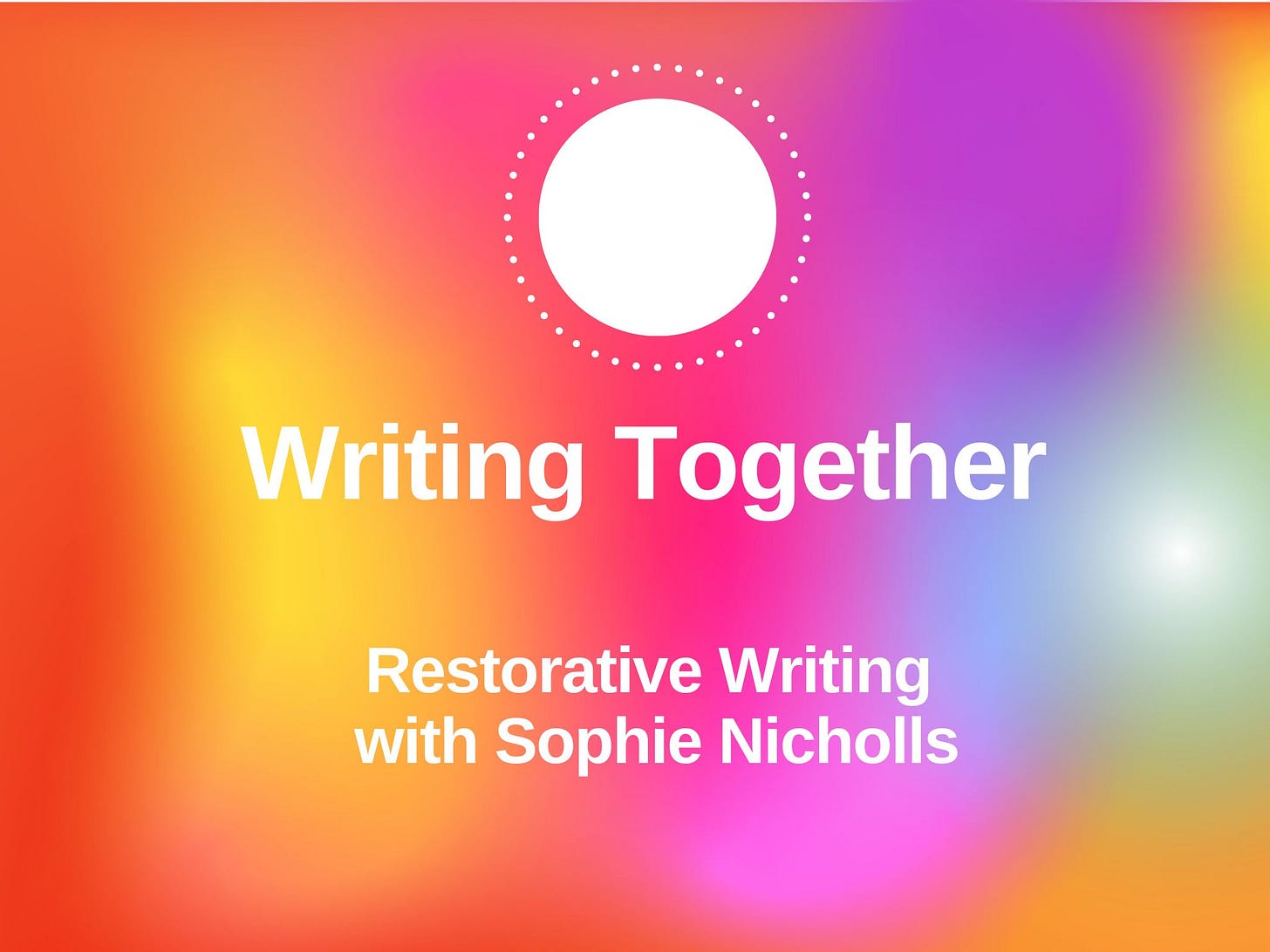'I only achieve simplicity with enormous effort' - Clarice Lispector
Let's write.
Dear friends,
Welcome back to Restorative Writing. I’ve missed you.
I’ve just returned from a week in beautiful Croatia where I spent time floating in water so clear that I could watch the fish swimming below me.
In the mornings, the sea was turquoise and in the late afternoons it was inky-blue and spangled with silver. I could hang there in the water, watching the light change, feeling the edges of myself softening, becoming something simpler. I wondered, as I do every time I’m able to return to the sea – which feels so much more like my natural element than floundering about on land – at how simple life can be when I surrender to its natural rhythm, when I let go of all the important deadlines and to-do lists and worries and struggles and self-consciousness.
How lucky I was to be able to get away for a week this summer. But I also caught myself wondering why I only ever allow myself this simplicity for a few days at a time? Why does it take me until around day four of any holiday to really begin to relax? And how might I carry some of this experience – the ocean, the light, the sun on my face – back into my everyday life so that it can nourish me here, where it’s raining and I have two pressing deadlines?
Even as I write this to you, my words seem too shapeless and vague to hold the feeling of it all. It’s like trying to carry seawater in my cupped hands.
The sea seeps between my fingers.
The words spill into one another.
Clarice Lispector writes about all of this in her wonderful, contradictory work, A Hora da Estrela (The Hour of the Star), published in 1977, shortly before her death.
“I only achieve simplicity with enormous effort” she writes, in the voice of her narrator, Rodrigo. Rodrigo tells us that he himself is a writer and, at the beginning of the novel, he’s struggling to find words to tell the story of Macabéa, a young girl living in a neighbourhood of Rio de Janeiro, and all the many stories tangled within her story – of poverty, justice, truth.
Rodrigo writes:
‘I am scared of starting. I do not even know the girl’s name. It goes without saying that this story drives me to despair because it is too straightforward. What I propose to narrate sounds easy and within everyone’s grasp. But its elaboration is extremely difficult. I must render clear something that is almost obliterated and can scarcely be deciphered.’
Writing sounds easy and it is not.
We write anyway.
Living, at least for most of us, is rarely easy. It certainly doesn’t seem to have been for Clarice Lispector.
In this way, writing and living are intertwined.
“So long as I have questions to which there are no answers, I shall go on writing,” writes Lispector, through Rodrigo.
Perhaps it’s like this for you too?
Right now, the world feels complex, difficult, hard to navigate. Writing is the best way I know to try to make sense of it, putting one word after another. The words slide like beads along a thread to make sentences. We pull on the thread, slowly, sometimes painfully. When we find precisely the right word, the right shape to hold a trembling feeling, to fix it in place, there is a little clicking sound, a sense of calm, perhaps a small exhalation.
Writing invitation
My invitation to you this month is to allow yourself a moment, whenever you can, to seek simplicity, to slip into the water and float on your back for a while, or whatever might be your equivalent.
You could do this metaphorically or literally. You might go for a walk, if this is available to you, or just sit quietly for a while, with the natural rhythm of your breathing. You might remember a time from recent weeks or months when things felt, for even a brief moment, simpler or easier. You might imagine as if you could feel just a little bit easier right now.
As Mary Oliver, would say: ‘Let the soft animal of your body love what it loves.’
Notice what happens.
Notice your breath. Notice the temperature of the air on your skin. Notice any changes in pressure or weight inside your body, around your body.
Notice the sensations, colours, images, dreams, ideas that begin to surface for you as you give yourself time to experience this.
The aim of this experiment is not to clear your mind of thoughts. The aim is simply to notice, with kindness and curiosity towards yourself, what happens when you begin to slow down, just for a moment.
When you’re ready, you could write or doodle some shapes for the ideas, images, sounds, sensations that surface.
There is no right or wrong way to do this – just your way.
And, as always, if this begins to feel in any way upsetting or discomforting and you feel that you need to stop, then please do stop. Don’t push through. Put writing aside for a while and go and do something else.
If you find slowing down difficult, as I so often do, here is a link to an audio track I made to guide you through the technique of focusing, which can be another powerful entry point into a more felt, bodily experiencing.
Next Writing Together live session:
⭐️ Saturday 14 September 2024 - 4pm (UK time) ⭐️
Keep your eye out for the Zoom link.
You can find all the dates for future Writing Together sessions until end of 2024 (and more detail about how they work) here.
See you soon!
Thank you for reading. Your support helps me to continue to make these resources free and accessible to as many people as possible. I so appreciate this community.
With love,
Sophie x




